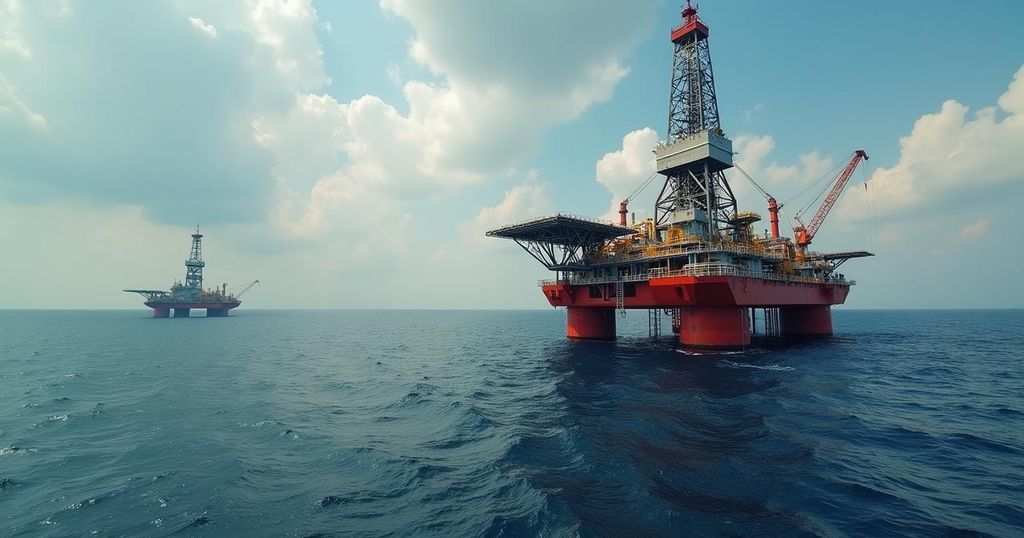Saudi Arabia, the UAE, and Qatar are lobbying the U.S. government to prevent any Israeli attacks on Iran that could endanger Gulf oil facilities. Iranian Foreign Minister Abbas Araghchi is seeking support from Gulf states to reduce tensions amid fears of military conflict. The Gulf nations have refused to allow Israel to utilize their airspace, with Iran warning that such actions could entangle them in conflict. Experts caution that a confrontation could disrupt global oil supplies and severely impact the economy.
Recent developments indicate that Saudi Arabia, the United Arab Emirates (UAE), and Qatar are actively lobbying Washington to curb any Israeli military actions against Iran, specifically aimed at safeguarding Gulf oil infrastructure. Reports from Reuters highlight a visit by Iranian Foreign Minister Abbas Araghchi to Gulf nations, wherein Iran seeks the collaboration of these states to reduce tensions amid fears of an Israeli strike on Iranian facilities, which could spiral into a broader conflict. Diplomatic insights shared with The National suggest that Iran’s overtures aim to bolster its standing in the ongoing conflict and mitigate regional hostilities. The concerns of the Gulf states are profound, indicating they fear retaliation from Iran or its affiliates should Israel initiate attacks. These three nations have explicitly barred Israel from utilizing their airspace, and Iran has communicated to Riyadh that it would not assure the security of Saudi oil installations if Israel conducts air strikes. According to a Saudi analyst, “The Iranians have stated: ‘If the Gulf states open up their airspace to Israel, that would be an act of war.'” As media outlets report indications of potential Israeli counteroffensives targeting Iranian military installations, international reactions remain cautious. President Biden has previously advised against an assault on Iran’s nuclear assets, maintaining a delicate balance in U.S.-Israeli relations amidst heightened regional tensions. Experts warn that an escalated confrontation between Israel and Iran could severely disrupt global energy supplies, posing significant risks to the international economy. Farzan Sabet, a senior research associate, asserted that “Major disruption of regional oil and gas exports is likely to have a material impact on the global economy.”
The geopolitical landscape concerning Middle Eastern oil production and regional security has become increasingly complex, particularly in relation to Iran’s nuclear ambitions and Israel’s military posture. The Gulf Cooperation Council members, particularly Saudi Arabia, the UAE, and Qatar, are deeply invested in averting direct military confrontations that could jeopardize their oil infrastructure. The potential for conflict not only threatens national security but could also have far-reaching implications for global oil supply given the region’s pivotal role in energy exports. The relationship between Gulf states and Iran has been fraught with tension, exacerbated by considerations surrounding Israel’s military actions and the U.S.’s strategic interests in the region.
In summary, the lobbying efforts of Saudi Arabia, the UAE, and Qatar to deter potential Israeli military actions against Iran underscore the precarious security scenario in the Gulf region. The potential for conflict looms large, with significant implications for both regional stability and international energy markets. The cooperative stance among Gulf states to maintain cautious relations with Iran while simultaneously opposing Israeli aggression highlights the intricate balance of diplomacy needed in a volatile geopolitical environment. Acknowledging the interplay of these factors is crucial for understanding the future dynamics of the Middle East and the global energy landscape.
Original Source: oilprice.com






